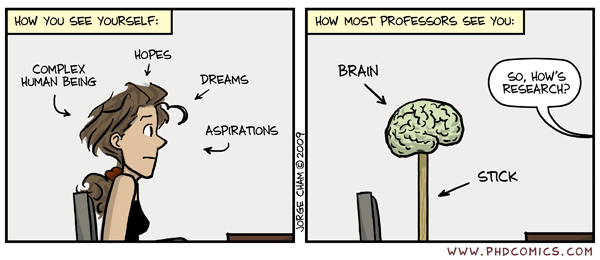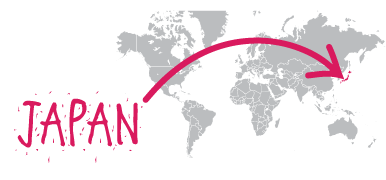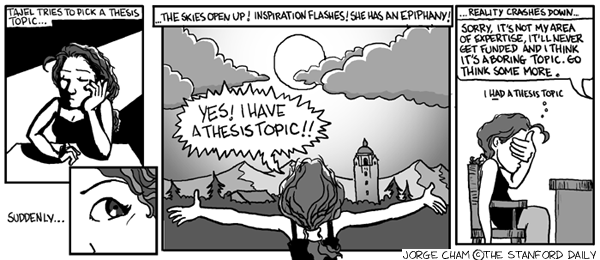Several years ago, after graduating with a bachelor’s degree (first class honours, sorry that will never get old) in computer science from JKUAT, I wrote an A to Z guide for campus students that I think is still relevant today. If you are just about to join university, be sure to check out the link.
The other day, someone asked me if I had any advice for her, she is a prospective PhD student. She is not the only one, a few other people ask me for general advice about doing a PhD. So I thought long and hard, as recent PhD graduates are wont to do. I finally decided to do a blogpost because there is so much to say. This might also apply anyone planning to do a master’s degree as well.
A PhD is a dedicated, long term project. Some master’s programs are taught and are only a year long so I would encourage anyone planning to do a master’s degree to go ahead. But a PhD? You should definitely take time to think about dedicating at the very least 4 years of your life to just focusing on one goal at the expense of all others. Even if the official PhD time takes 3 years, like in my case, you might still spend a year preparing for the PhD and some transition time post PhD. Here are 10 things you should consider:
- Goal: Why Are You doing a PhD?
You really need to know why you are doing your PhD, otherwise when the nights are long and the going is tough, you might lose sight of that goal. In my case, I wanted to change my career. A PhD can be an end goal in itself, or it could be a stepping stone to a career in academia or industry. There were days when I asked myself why I was subjecting myself to a PhD but then I would keep reminding myself of my goal. I was working at a global consulting company but I knew I wanted to join the science side of things. I wanted to be where the technology is developed, not just the point of sale part. So I knew I wanted to get the PhD and then join a global IT company in research. It would have been hard to make the move from the business side to a job in RnD so the PhD was necessary. I also wanted to do AI or at least its application and a PhD was a way to acquire the knowledge necessary to make the move.
If you are doing it for the money, don’t even bother. For 4 years, my stipend was the same (and is now less as a postdoc as I am working part time!). While my friends still in the working world got raises or changed jobs and increased their wages, mine remained stagnant. There might be inflation or not but your scholarship/salary/allowance will generally remain the same as long as you are a student. Studies have shown that a PhD is only marginally more valuable than a master’s degree in earnings. “A PhD is more of a pride thing as it only rarely make you more money than a master’s degree.”
2. Adviser
Your PhD adviser/supervisor is the most important decision you will have to make when you decide to do a PhD, besides choosing the topic of your research. A good supervisor will guide you towards your graduation and be available for consultation throughout the PhD. A great supervisor will understand your situation e.g. if you have a family with young kids. It can be hard to know what kind of person your supervisor will be, but you can try to figure it out from their prompt response to your emails, tone, etc. If they respond within a reasonable time, that is a good sign. You can also have a talk about your situation and expectations in advance. Some supervisors want to see you in the lab all the time, while others are content with seeing you at the weekly or bi-weekly lab meetings. Some supervisors may be excellent researchers but are verbally abuse to their students (true story about one lab I know of in particular, someone must cry at the progress report meeting); some are physical (I heard of one who slapped his student!), some have no conflict resolution skills, some engage in unethical practices like doctoring the data as long as they can publish the results, etc. Some supervisors have really nice personalities but are clueless when it comes to guiding you on the PhD path, so you may be stuck for years trying to complete your PhD without an experienced guiding hand. It is hard to really know what kind of person your future supervisor will be like, but if you can, it is worth taking the time to contact former/current students and asking them about their experience.
3. Where to do your PhD?
This depends on two factors: availability of funding and the topic of your research. If you are doing a science/engineering/technology degree, I would encourage to do it in Japan, provided you get funding. I got the MEXT scholarship, but there are also other scholarships like Rotary, JSPS, etc . Some supervisors also have private laboratory funds from companies funding research so they can also fund PhD students. Some universities here have state of the art equipment laboratories for research, conferences etc.
The timing for a PhD in Japan is generally structured, so you can actually know your expected graduation way in advance.
4. Your Topic
When you begin your PhD, you may not know exactly what your topic will be. And that’s ok. It might also change over time. You just need to know the general research area and the subtopics you are interested in. Contact the supervisors who are doing those same topics and find the one carrying out research closely related to your interests. You can also google the open questions in your research area or read tons of papers while paying close attention to the “future work” sections of the papers. You need to have a passion for your research topic. I don’t mean passion like a burning fire in your belly, but an enduring need to see your research through to the very end.
5. Prioritize
Let’s say you’ve finally decided on the university, topic and adviser. So now it’s time to put in the work. There will be many tasks demanding your time, some meaningful and some not. Even now, whenever I look at my list of “projects”, I realize that it is quite long and I don’t think there is enough time in the world to finish all of these projects. So I have to prioritize, every day. During the PhD, my focus was on completing it on time.
6. Mental Health
There are so many studies, news reports, blogs and articles all saying that there is a mental health crisis among graduate students. PhD students suffer from depression and anxiety because of low wages, high pressure to produce results and publish, uncertain future, lack of a social life, etc. When you prioritize, put yourself on top of that list. Even if you have family, you should still take care of yourself first so that you’re able to take care of others. You know what they say, you can’t pour from an empty cup or something of the sort.
You can’t be on all the time, you need time off during the PhD. You probably can’t afford to take a long time off but you can take numerous small breaks. Do something that takes your mind off the PhD. Binge watch Netflix for a weekend. Climb a mountain. Take a weekend trip away. Go on Tinder dates. Read novels. Exercise. Get a hobby. Go out dancing with your friends. Make friends with people doing a PhD under similar circumstances, for instance I am in a group on Facebook for PhD parents/Early Career Researchers. Your friends don’t have to be in the same physical space, even online friends can be helpful.
Get ENOUGH sleep.
7. Maintain your social ties.
Do not ignore your friends. They ground you. I reached out to my friends whenever I needed encouragement. We talk about life all the time, the choices we are making and the different paths our lives are taking.
8. Patience
It takes time to do great work. Keep your overall goal in mind.
9. Celebrate small victories.
Break your large goal into smaller goals. Prioritize. And when achieve a small goal, take the time to celebrate. You don’t need to wait until you finally finish the PhD to celebrate (because it will be underwhelming, trust me). Celebrate when your code works. When your data is looking good. When the conference paper is accepted. When your journal paper is published. When you clean your room.
10. Prepare for the post PhD period
There is a ton of blogs out there telling you how to survive the PhD. And one day, you will have the convocation ceremony, and then it will all be over. What next? You might get caught up in post-phd blues (yes, that’s a real thing). Prepare for the post-phd period. Take some time off and travel, or do a part-time job, just do something to give yourself a mental break and transition into the working world. You need time off to recover from the trauma of a PhD.
And just like when you completed your bachelor’s degree, you don’t have to be constrained to careers that are tied to your PhD. You can work in a related area or an in a field that is completely unrelated. The research skills you learned during the PhD should serve you well whatever you decide to do after the PhD is over.
Bonus:
Lastly, don’t let other peoples experiences discourage you, including this post. When I first came to JAIST, someone told me “oh, it’s impossible to finish a PhD in 3 years.” I heard a lot of other discouraging statements in my time here, but do not let anyone deter you from your goal. Remember, people will tell things from their experiences, but your experience will not necessarily be the same as theirs.
Do not forget to subscribe to PhD comics.com




Nice read. You’re the kind of a supervisor I would like to have in my PhD. Would wish to meet you some day.
LikeLike
Hi, thanks for reading and for the nice comment. I’m going to be working in the industry but I may get back to academia. It’s a small world so we may meet some day, who knows?
LikeLike
Nice one!
I’m two months into my Masters and this really comes in handy 👏
But how do you get enough sleep with all the assignments and recommended texts to read? I’m lucky if I get 5 hours of sleep !
LikeLike
Oh I understand about the coursework involved when doing a master’s degree. I didn’t have much coursework to do as a PhD student and if I didn’t get enough sleep, I realized my progress was slow. If I slept enough, I would take a shorter time to do a task. Just hang in there and take a rest whenever you get the chance.
LikeLike
This is so true SK. I am like 8 months old in Japan and your story ticks every box of my experiences.
LikeLike
All the best in your studies!
LikeLike
Pingback: Tips for Kenyan Students Coming to Study in Japan, Part 1 | Savvy Kenya in Japan